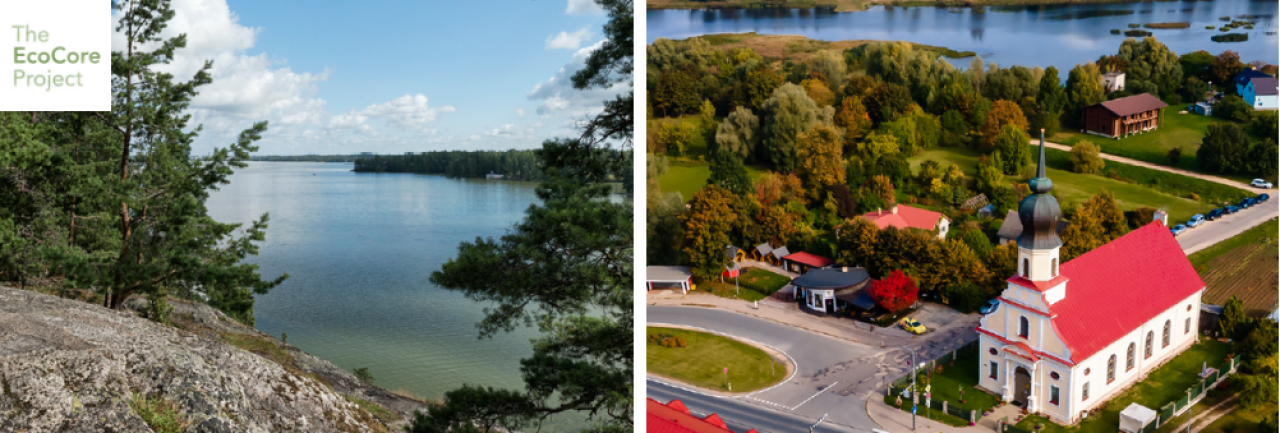Tuusula: Pioneering Circular Economy and Green Zoning Tools
On September 17 and 18, partners explored Tuusula, a historic yet forward-thinking municipality near Helsinki. The opening remarks by Mayor Kalle Ikkelä provided a backdrop of Tuusula’s growth and challenges. With a population of 42,000 the municipality is investing heavily—around €80 million annually—in new services such as health and education as well as in green and industrial developments, including key projects like the FOCUS area, located near Helsinki Airport.

FOCUS, a vast industrial zone (5.5km2) planned for development, is at the heart of Tuusula’s sustainability agenda. This zone is critical for creating up to 10,000 new jobs while minimizing environmental impact through circular economy practices. The zone once developed will be an asset for the entire region and benefit from the collaborative strategic marketing and branding potential provided by the Helsinki Ring of Industry - a collaboration of ten neighboring municipalities around Helsinki with the aim of increasing the area’s recognition and attractiveness among international companies, experts and investors.
The municipality’s ambitious climate program (with an aim to achieve carbon neutrality though scope 1 and 2 emissions by 2035) and the use of the Green Factor tool for urban zoning further exemplify its dedication to sustainable development. The Green Factor tool ensures that new urban developments meet environmental standards by integrating green infrastructure such as permeable pavements and green roofs, making it a model for other cities interested in sustainable urban planning.
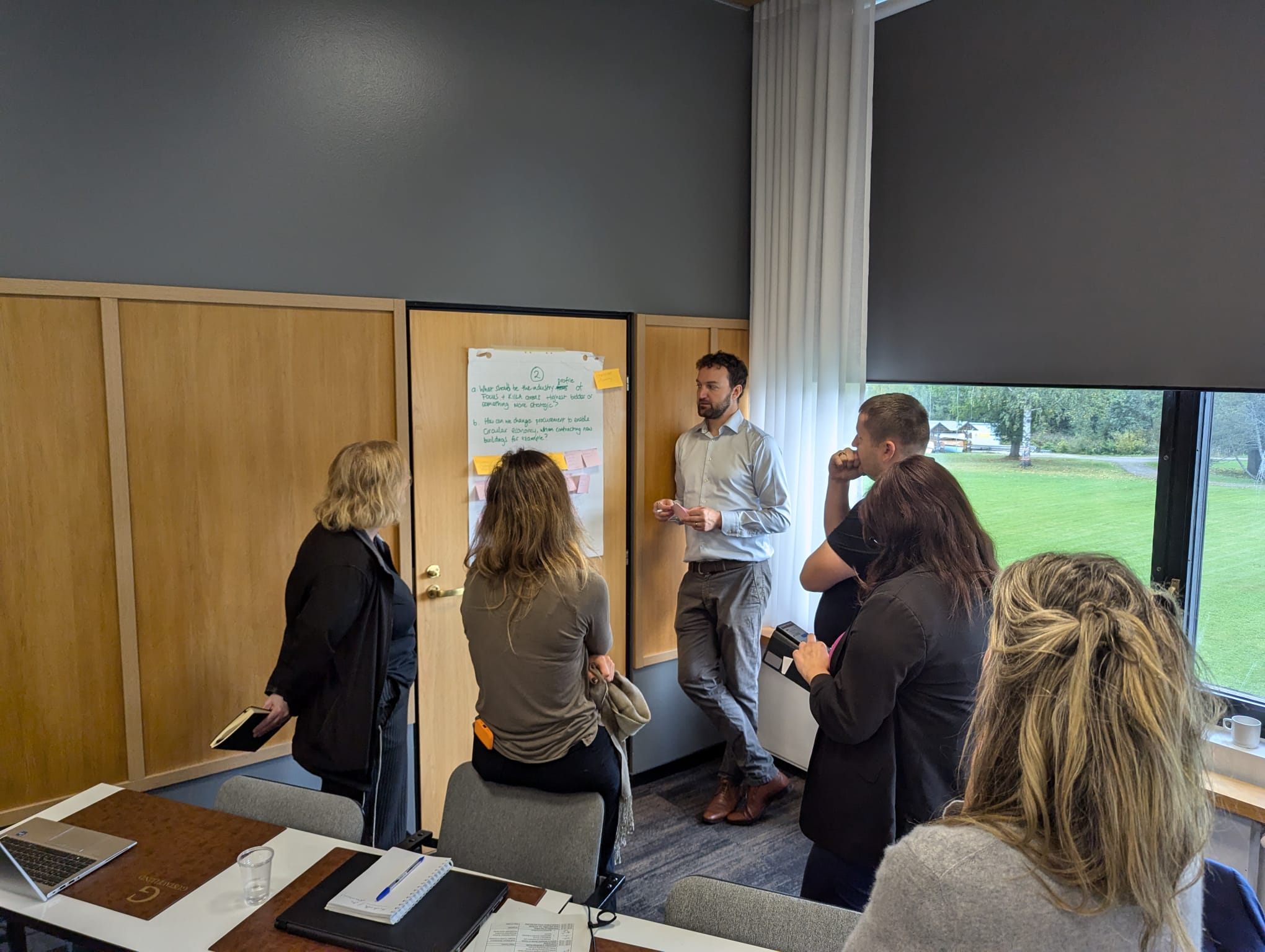
In challenge based workshops, participants debated how to extend these tools to industrial zones and discussed strategies for participatory development. The town's commitment to participatory budgeting, where residents from 12 years and older help decide how public funds are used, highlighted how local involvement is key to success in green transitions.
Ķekava : Circular Economy in Action and Renewable Energy Solutions
On September 19, the group visited Ķekava , a small but rapidly growing municipality near Riga. Mayor Viktorija Baire emphasized the town’s ambition to integrate sustainability into its growth trajectory. While Ķekava's urban population grows, so does the need for sustainable infrastructure and business innovation.
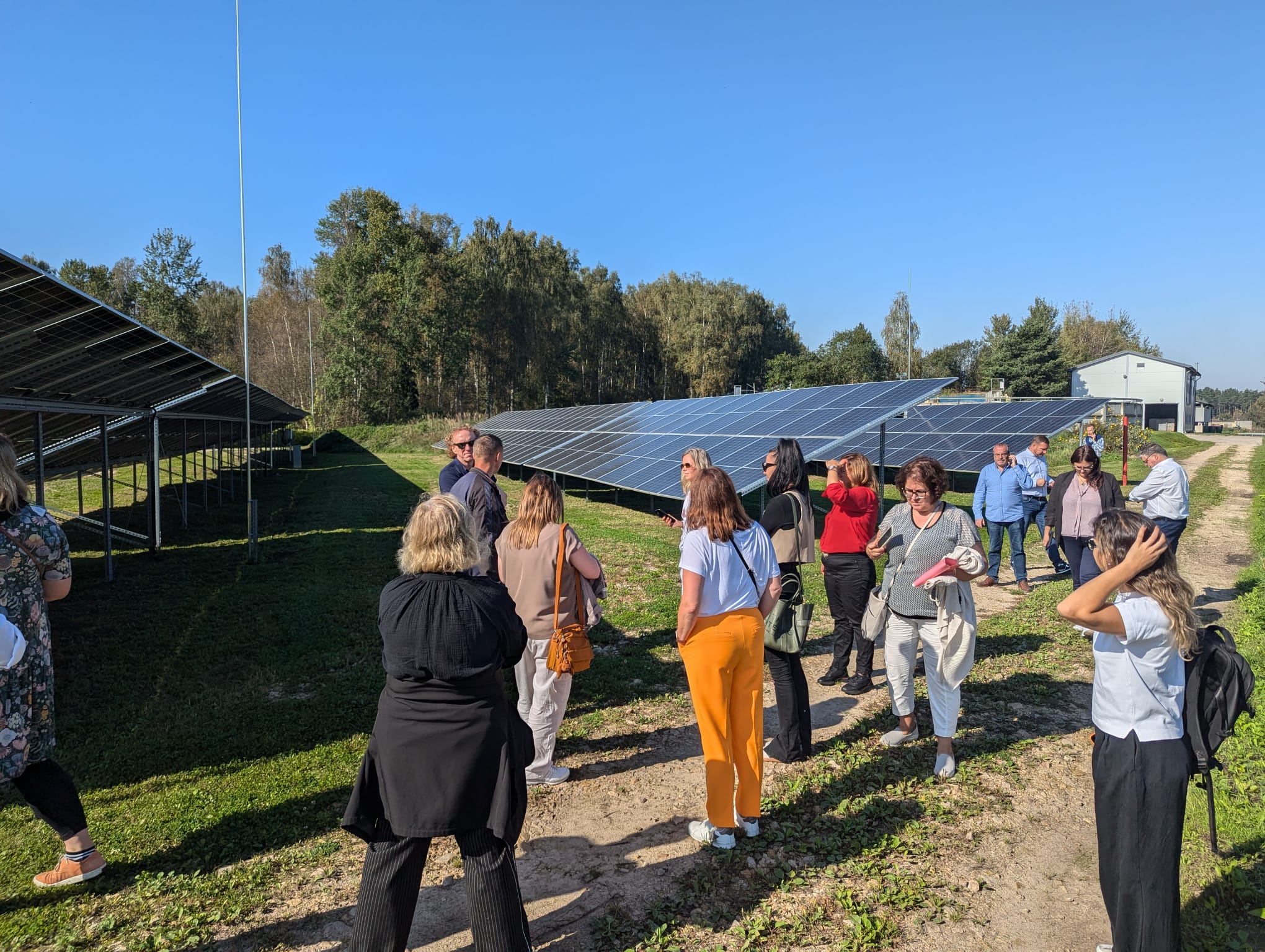
Participants were introduced to Ķekava's achievements in industrial symbiosis and renewable energy. A visit to the Gurnicas waste sorting area and a plastic recycling plant underscored the municipality’s focus on reducing waste and collaborating with local companies like Ķekava Foods to close the loop on waste cycles and support industrial symbiosis. In Valdlauči, participants observed how municipal utility companies are harnessing local renewable energy sources, such as solar power and wood chips, to meet water treatment and district heating needs, demonstrating practical applications of sustainability in everyday urban services.
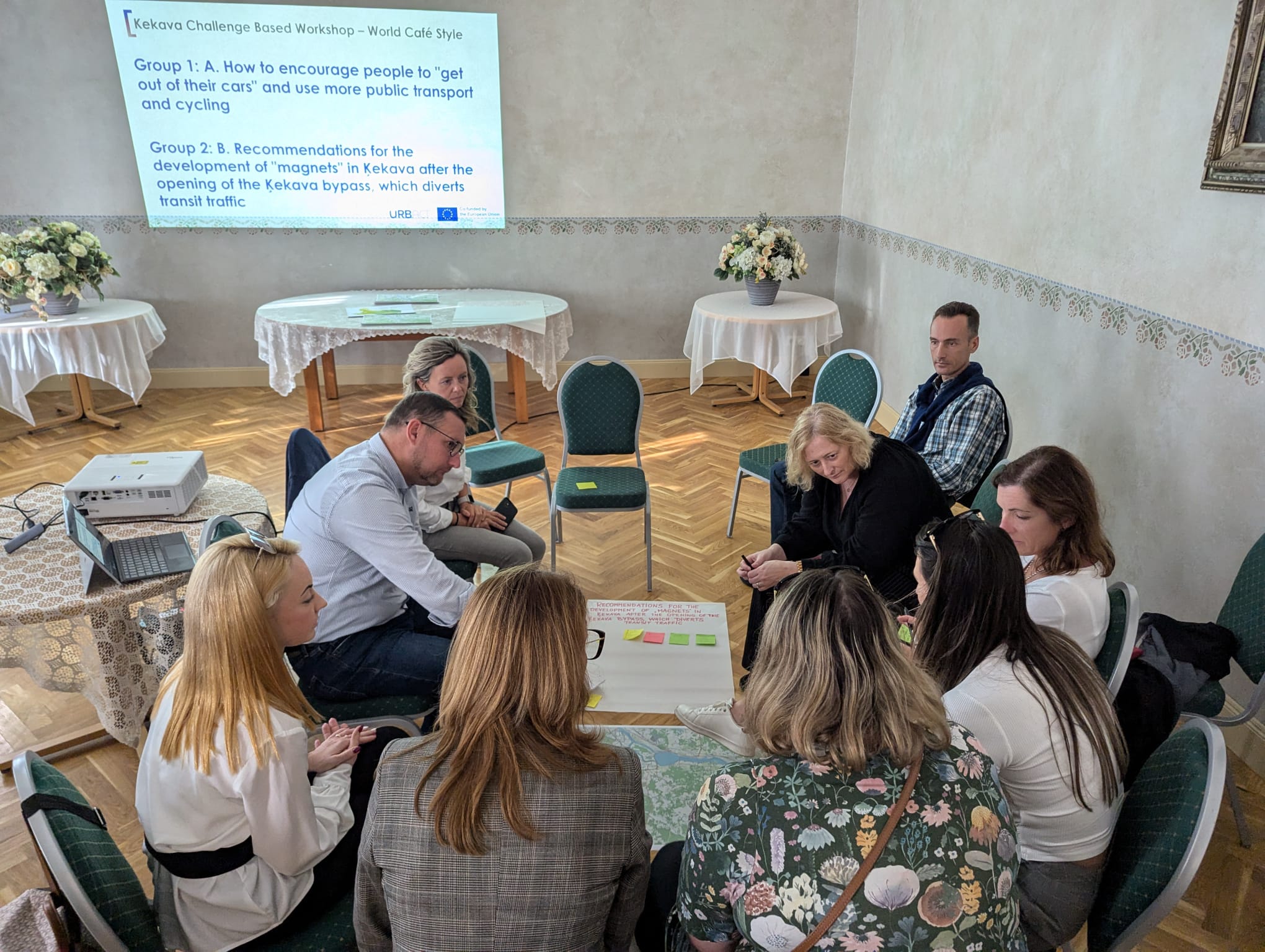
Ķekava's participatory budgeting initiative, launched in 2023, further reflects the town's commitment to community-driven green transition projects. From expanding bicycle networks to installing energy-efficient public lighting, these initiatives showcase how Ķekava is harnessing local and European funds to drive a sustainable urban future.
Lessons and Takeaways
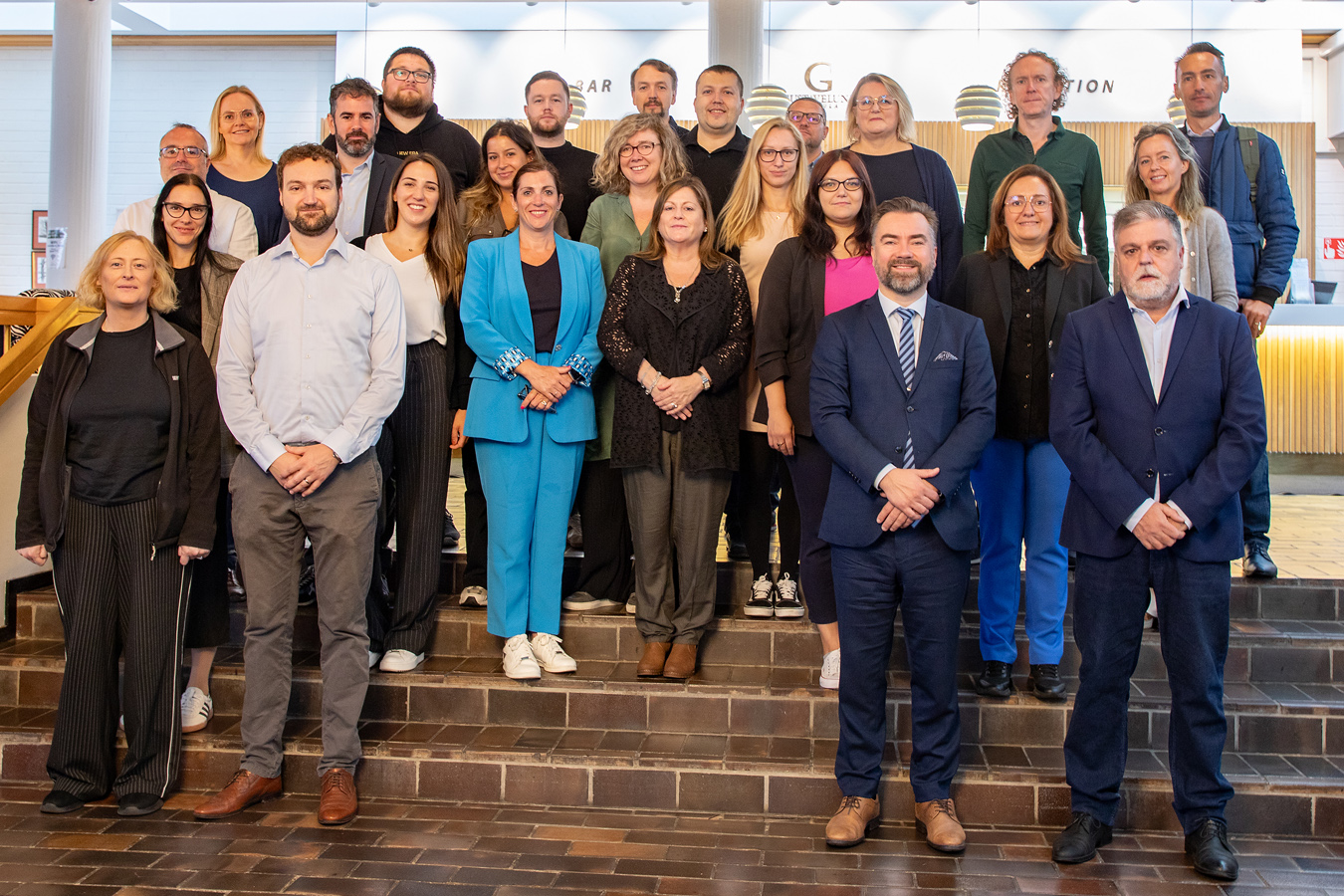
Both Tuusula and Ķekava provided strong examples of how municipalities can adapt to the challenges of the green transition. In Tuusula, strategic investments in green zoning, circular economy areas, and participatory processes showcase a municipality willing to take bold steps toward carbon neutrality. Meanwhile, Ķekava highlights how smaller towns can play a significant role by heavily investing in cycling infrastructure and switching to local renewable energy solutions.
The EcoCore visit reinforced the importance of collaboration between municipalities, businesses, and citizens to achieve the ambitious goals of the green transition. The lessons learned in Tuusula and Ķekava offer practical strategies that can inspire cities across Europe to embrace sustainability, boost their economies, and improve the quality of life for residents.
As both towns continue their journeys toward sustainability, their success stories will likely serve as blueprints for other cities aiming to achieve similar green objectives.

